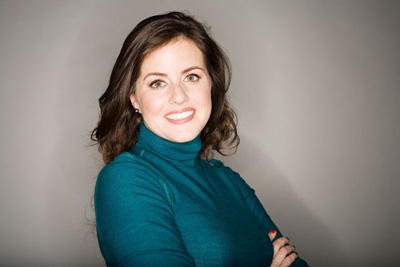WITH JORDANNA THIGPEN

Photo by Jack
Huynh, Orange
Photography
Let's scrap San Francisco bio-solids Road Show
Turn night soil to black gold
By Jordanna Thigpen
February 24, 2006
Recently, the SF PUC has been touring the City with an Antiques
Road Show describing the changes to our city's sewer system. The
road show is educational and interesting; and the agency is looking
for feedback, so if you have any, you know that now is the time
to provide it.
Part of the road show describes an imminent problem that the
City is facing: in 2007, the ordinance that enables us to ship
our bio-solids to Solano County is expiring.
Rather than lobby for renewal, it is time for the PUC to look
at new technology for solid waste management, one that can help
us turn night soil into black gold.
Anyone else a child of/remember the 80s? Bio-solids are the like
the Banana Round of Ms. Pac-Man: supposedly the final outcome
of the sewage treatment process. And like the Banana Round, you've
got to stay alert and move quickly unless you want to lose. Our
current, hopelessly 20th-century solution of shipping bio-solids
from densely populated urban areas to Solano, Kern, or (Any Agricultural
County) is not going to work in the long term.
Of course after Banana Round, the fruit was random. Remember
that pure adrenaline rush the first time you made it past Banana!
We will have a more focused approach, but bio-solids are not as
final as we have believed.
Locally, bio-solids are already in use as fertilizers for animal
feed. Bio-solids are used in Melbourne, Australia as a base for
soil mix. Dewatered bio-solids have helped rehabilitate land laid
to waste by industrial processing because of chemical reactions
they help produce. They are also important as a base for cement
mix. With the ongoing construction in China Basin, Mission Bay,
and still, SOMA, perhaps it's time to consider a set-aside of
local bio-solids for local construction.
There was a recent announcement that dog poop in its raw form
would be collected at certain City parks and turned into energy.
There is a plan to harvest the methane, as we currently do with
human bio-solids. But dog poop is very different than bio-solids.
Across the world, cities must deal with bio-solids. It's not
easy. Besides the public relations issues regarding beneficial
use, there are obvious environmental problems. Bio-solids are
very high in heavy metals such as zinc, mercury, cadmium, and
copper, all of which can be poisonous to humans. Various applications
create other problems. For example in London and Paris, bio-solids
are burned for fuel, but the process creates ash which still needs
to be disposed of. It's important to note that modern processes
allow for excellent air emission quality, and that the life-cycle
costs of incineration are the lowest of any feasible bio-solids
management option, according to some studies.
There is another method of disposing of organic waste, which
is nascent, and just beginning to gain respect after years of
R&D. It is called thermal depolymerization (TDP). First developed
by Illinois microbiologist Paul Baskis in the 1980s, and evolved
now into TCP by Changing World Technologies (www.changingworldtech.com),
the first major plant to use this technology is located in Carthage,
Missouri, next to a Butterball turkey factory. The plant uses
turkey waste to produce crude oil. Believe it or not, Changing
World actually has to pay for the turkey waste. It's legal to
use turkey waste as feed for cattle and other animals, so the
plant owners could make a profit on their garbage in other industries.
Admittedly, the plant has run into some problems due to NIMBY
complaints about odor, although you have to believe that the turkey
factory hasn't always channeled the perfume counter through the
years. Missouri's Governor Matt Blunt shut the plant down in December
2005 due to citizen complaints.
TCP can convert plastics, human and animal waste, and major chemicals
to living energy in an alchemical, beautiful magic. It breaks
down poisons and even rogue prions like BSE. For this reason it
is touted as the solution to the spread of animal diseases that
exist because factory animals are currently subsisting on diseased,
rendered animals from other factories. TCP can even remove the
heavy metals that other bio-solids management practices can't
eliminate. Most importantly, TCP is taking waste and turning it
into fuel - and will soon make it impossible for companies like
Exxon, with a $36B 2005 profit, to claim with cocksure, breathtaking
arrogance, that, "The US will always be dependent on foreign
oil."
It is time to bring TCP to San Francisco. Changing World Technologies
formed a joint venture with Con-Agra, owners of the Butterball
plant, to address the turkey waste problem. Its business plan
depends on "partnerships with entities which have waste streams
under control." As a municipal entity with a relentless waste
stream, we need to find a similar partner who will help us fund
construction of a TCP plant. Perhaps Senator Perata's ambitious
and necessary infrastructure bond plans can emphasize alternative
waste management practices, but we can't wait. We must act now,
perhaps in concert with adjoining counties, and even the federal
government, to create a TCP fund. Our world cannot wait.
District 6 resident Jordanna Thigpen is an attorney, small
business owner and a Commissioner with the City's Small Business
Commission. You can usually find her at work and she doesn't get
to Ocean Beach often enough. Email Jordanna at jgthigpen@gmail.com.
Click
here for Thigpen archive.
####
|